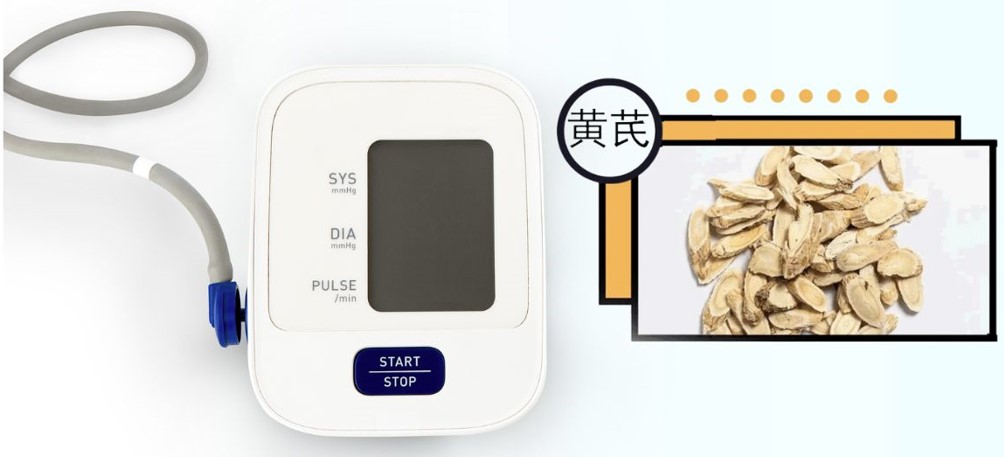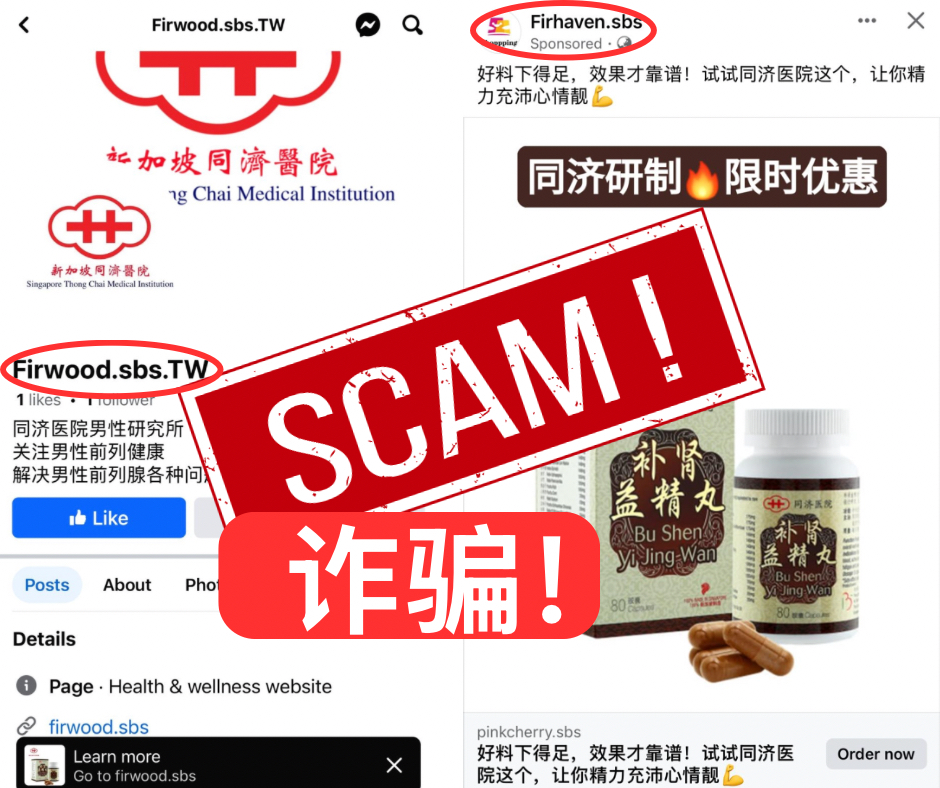Hypertension is one of the most common chronic conditions in the world today, affecting up to 45% of adults, and 60% of persons over 60 years of age. Hypertension is primarily managed using conventional western medication, and the majority of the patients who have hypertension seek TCM treatment for other conditions. Hypertension is not mentioned in historical TCM literature, however, there are many references to the common presentations of hypertension, such as headache and dizziness, and in some cases where hypertension has progressed and caused systemic complications, there is mention of edema, angina, heart palpitations, and stroke. According to the published National herbal medicine assembly (全国中草药汇编), Astragalus membranaceous is able to strengthen contractions of the heart muscle in individuals with heart failure which then increase blood flow from the heart and raises blood pressure; it is also able to dilate blood vessels, improve peripheral circulation, which reduces the blood pressure in hypertensive individuals.
Various research has revealed Astragaloside IV (黄芪皂苷Ⅳ /黄芪甲苷) to be the main active ingredient in improving cardiac function and possibly increasing blood pressure. The mechanism of action is yet to be fully understood, but research has shown Astragaloside IV is able to inhibit the activity of myocardial sodium-potassium-ATPase, improve myocardial energy metabolism, as well as promote recovery in Ca2+-pump function of the sarcoplasmic reticulum (SR)12. The Anti-hypertensive effects of Astragalus membranaceous is more widely researched, with animal studies indicating that it is able to inhibit ACE activities in a dose-dependent manner via an ACE inhibitory phytopeptide, and so reduce systolic blood pressure. As such there is legitimate basis to be concerned about blood pressure fluctuations in hypertensive patients taking Astragalus membranaceous, would the effects of Astragalus membranaceous nullify the effect of existing hypotensive medication? or would it further increase the hypotensive effect of existing medication?
We examined a few clinical trials involving various conditions where Astragalus membranaceous was used in the treatment of patients who have hypertension. The trials were conducted in China where Chinese Medicine is used alongside Western Medication as part of standard healthcare and among papers that published a record of observed adverse events, there was no mention of patients’ blood pressure going beyond the normal range. In all cases, Astragalus membranaceous was used as part of a formula with multiple herbs to treat the target condition (in some cases, the papers specifically looked at hypertension) and never used alone as a single herb. Based on existing research, we are unable to confirm how the interaction of other herbs with Astragalus membranaceous impacts blood pressure. Available evidence does suggest that the usage of Astragalus membranaceous as part of a herbal formula doesn’t negatively affect patients’ hypertension, however, this is while keeping to the recommended dosage recommended in most Chinese Medicine Directories.
References
- NCD Risk Factor Collaboration (NCD-RisC). Worldwide trends in blood pressure from 1975 to 2015: a pooled analysis of 1479 population-based measurement studies with 19.1 million participants. Lancet. 2017,389(10064):37-55.
- Carretero OA, Oparil S. Essential hypertension. Circulation. 2000, 101(3), 329–335.
- Iqbal AM, Jamal SF. Essential Hypertension. [Updated 2022 Jul 4]. In: StatPearls [Internet]. Treasure Island (FL): StatPearls Publishing; 2022. Available at: https://www.ncbi.nlm.nih.gov/books/NBK539859/. (Accessed on: 4 January 2023)
- Warren HR, Evangelou E, Cabrera CP, et.al. International Consortium of Blood Pressure (ICBP) 1000G Analyses. BIOS Consortium. Lifelines Cohort Study. Understanding Society Scientific group. CHD Exome+ Consortium. ExomeBP Consortium. T2D-GENES Consortium. GoT2DGenes Consortium. Cohorts for Heart and Ageing Research in Genome Epidemiology (CHARGE) BP Exome Consortium. International Genomics of Blood Pressure (iGEN-BP) Consortium. UK Biobank CardioMetabolic Consortium BP working group. Genome-wide association analysis identifies novel blood pressure loci and offers biological insights into cardiovascular risk.Nat Genet.2017,49(3):403-415.
- 2017 ACC/AHA/AAPA/ABC/ACPM/AGS/APhA/ASH/ASPC/NMA/PCNA Guideline for the Prevention, Detection, Evaluation, and Management of High Blood Pressure in Adults: A Report of the American College of Cardiology/American Heart Association Task Force on Clinical Practice Guidelines.
- Whelton PK, Carey RM, Aronow WS, et.al. 2018 ESC/ESH Guidelines for the management of arterial hypertension: The Task Force for the management of arterial hypertension of the European Society of Cardiology and the European Society of Hypertension. Journal of Hypertension.2018,36(10):1953-2041.
- Rapsomaniki E, Timmis A, George J, et.al. Blood pressure and incidence of twelve cardiovascular diseases: lifetime risks, healthy life-years lost, and age-specific associations in 1.25 million people. Lancet. 2014,383(9932):1899-911.
- 中华中医药学会发布《中医内科常见病诊疗指南•西医疾病部分》北京:中国中医药出版社. 2008:63-66.
- 汪艳丽. 正确认识高血,中医防治有妙招. 北京卫生健康委员会. Available at: https://wjw.beijing.gov.cn/bmfw_20143/jkzs/jksh/202401/t20240107_3527902.html. (Accessed on 4 January 2024).
- Zhang J, Wu C, Gao L, et.al. Astragaloside IV derived from Astragalus membranaceus: A research review on the pharmacological effects.Adv Pharmacol. 2020, 87:89-112.
- Zang Y, Wan J, Zhang Z, et.al. An updated role of astragaloside IV in heart failure. Biomedicine & Pharmacotherapy. 2020, 126: 110012, ISSN 0753-3322.
- Xu XL, Ji H, Gu SY, et.al. Modification of alterations in cardiac function and sarcoplasmic reticulum by astragaloside IV in myocardial injury in vivo. Eur J Pharmacol. 2007, 568: 203-212.
- Chen H, Zheng PL, Dai JY, et.al. Influence of astragaloside IV (ASIV) on systolic and diastolic function in dogs with acute heart failure. Chinese Pharmacological Bulletin. (2005)
- Lin X, Wang Q, Sun S, et al. Astragaloside IV promotes the eNOS/NO/cGMP pathway and improves left ventricular diastolic function in rats with metabolic syndrome. J Int Med Res. 2020, 48(1):300060519826848.
- 米志勇, 李永新, 张代碧. 黄芪注射液治疗急性心肌梗死并发心源性休克疗效观察. 中国中医急症. 2009,10:1621+1647.
- Wu JS, Li JM, Lo HY, et.al. Anti-hypertensive and angiotensin-converting enzyme inhibitory effects of Radix Astragali and its bioactive peptide AM-1. Journal of Ethnopharmacology. 2020, 254:112724.
- 陈嘉琪. 基于数据挖掘和网络药理学探讨高血压性脑出血方药规律和作用机制.北京中医药大学,2021
- Li NY, Yu H, Li XL, et al.Astragalus MembranaceusImproving Asymptomatic Left Ventricular Diastolic Dysfunction in Postmenopausal Hypertensive Women with Metabolic Syndrome: A Prospective, Open-Labeled, Randomized Controlled Trial.Chin Med J (Engl). 2018;131(5):516-526.
- Wang H, Liu C, Zhai J, et.al. Niuhuang Jiangya Preparation (a Traditional Chinese Patent Medicine) for Essential Hypertension: A Systematic Review. Complementary Therapies in Medicine. 2017, 31:90-99.
- 宋传景,庄欣. 补中益气汤对气虚型高血压病降压作用的Meta分析. 湖南中医杂志. 2018,02:118-119.
- 李猛,李芳. 补阳还五汤联合生脉散颗粒对高血压颈动脉粥样硬化患者临床疗效观察. 山西医药杂志. 2019,01:36-38.
- 骆淑斐. 益气活血通络汤联合西药治疗老年原发性高血压临床研究. 新中医. 2018,10:59-61.
- 姜岳,肖燕兰,吴春艳,等. 黄芪颗粒治疗高血压患者的社区随访观察. 中国中医药现代远程教育. 2014,12:153-155.
- 郑浪花,林慧,曾活. 黄芪颗粒对原发性高血压动态动脉硬化指数的影响. 中国当代医药. 2016,01:182-184.
- Zhang L, Shergis JL, Yang L et.al Astragalus membranaceus (Huang Qi) as adjunctive therapy for diabetic kidney disease: An updated systematic review and meta-analysis. Journal of Ethnopharmacology. 2019, 239: 111921.
- Joseph NT, Chow EC, Peterson LM, et.al. What Can We Learn From More Than 140,000 Moments of Ecological Momentary Assessment-Assessed Negative Emotion and Ambulatory Blood Pressure? A Systematic Review and Meta-Analysis. Psychosom Med. 2021,83(7):746-755.
- Gavrilova L, Zawadzki MJ. Testing the Associations Between State and Trait Anxiety, Anger, Sadness, and Ambulatory Blood Pressure and Whether Race Impacts These Relationships. Ann Behav Med. 2023,57(1):38-49.



